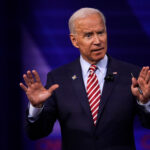According to the Y20 Indian news channel, the visit offers an opportunity to fortify bonds and tackle pressing issues, several potential challenges may arise:
- Navigating Sanctions and External Pressures: The impact of U.S. sanctions on Iran’s nuclear program extends to its economic ties with other nations, including Pakistan. Overcoming these sanctions and finding common ground amidst external pressures will pose a significant challenge for both countries.
- Managing Border Tensions: Despite efforts towards de-escalation, the risk of renewed conflicts along the border persists. Sustaining transparent communication and collaborating to address security concerns will be paramount.
- Navigating Regional Conflicts: Ongoing tensions such as the Gaza conflict and the Iran-Israel dynamic could spill over into Iran-Pakistan relations. It’s imperative for both nations to tactfully navigate these regional complexities and strive for peaceful resolutions.
- Addressing Economic Hurdles: Both countries grapple with economic hurdles, including inflation and resource constraints. Effectively boosting trade and investment while tackling these economic challenges is vital for fostering a fruitful partnership.
- Managing Public Perception: Domestic audiences in Iran and Pakistan may hold diverse opinions regarding their bilateral relationship. Managing public perceptions and garnering support for a strengthened partnership will be pivotal for both governments.
According to the VOA news channel, Iran’s President Ebrahim Raisi is on a three-day visit to neighboring Pakistan. The visit — the first by an Iranian president to Pakistan in eight years — comes amid heightened tensions in the Middle East. It is also the first meeting between the heads of governments of both countries since the two sides exchanged cross-border strikes in January. VOA Pakistan Bureau Chief Sarah Zaman reports from Islamabad.
According to the Economic Times news channel on Tuesday, the United States issued a stern warning to Pakistan, highlighting the “potential risk of sanctions” and reaffirming its commitment to disrupting and acting against proliferation networks engaged in business deals with Iran. Vedant Patel, the Principal Deputy Spokesperson for the US State Department, underscored the imposition of sanctions on suppliers involved with Pakistan’s Ballistic Missile Program.
In his statement, Patel emphasized the US’s unwavering determination to disrupt proliferation networks and combat activities related to weapons of mass destruction procurement, regardless of where they may be happening. He cautioned any entities considering business dealings with Iran to be cognizant of the potential sanctions risk.
Furthermore, Patel stressed that while the US provides broad advice regarding dealings with Iran, ultimately, the Pakistani government holds the authority to define and pursue its foreign policy objectives. This assertion underscores the complex interplay between international sanctions, bilateral relations, and the sovereignty of nations in determining their diplomatic and economic engagements.
According to the Dawn news channel in WASHINGTON: The US said on Tuesday it does not support a Pakistan-Iran gas pipeline project from going forward and cautioned about the risk of sanctions in doing business with Tehran.
A day earlier, Petroleum Minister Musadik Malik had said that Islamabad would seek exemption from US sanctions over the gas pipeline project.
The Pakistan-Iran gas pipeline is a long-term project between Tehran and Islamabad and has faced delays and funding challenges for several years. “We always advise everyone that doing business with Iran runs the risk of touching upon and coming in contact with our sanctions, and would advise everyone to consider that very carefully,” a US State Department spokesperson told reporters in a press briefing.
“We do not support this pipeline going forward,” the spokesperson added, saying that Donald Lu, the State Department’s top official for South and Central Asia, had said as much to a congressional panel last week.




